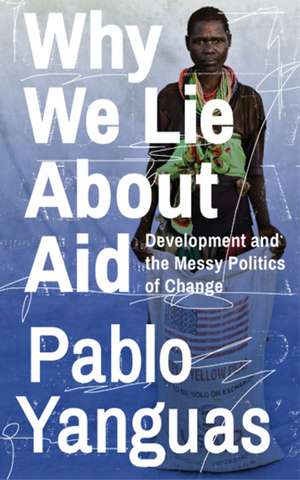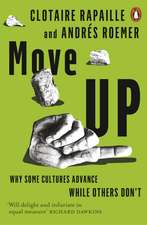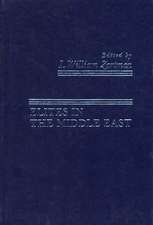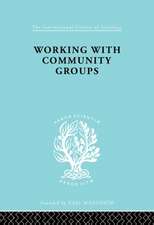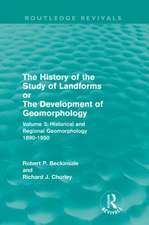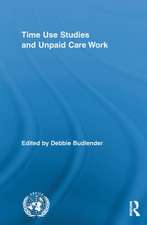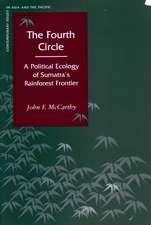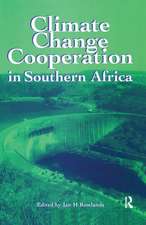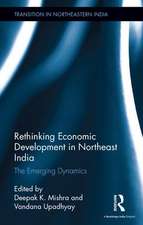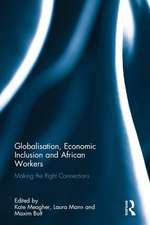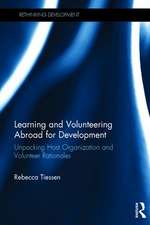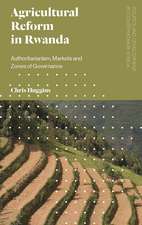Why We Lie About Aid: Development and the Messy Politics of Change
Autor Pablo Yanguasen Limba Engleză Paperback – 14 feb 2018
| Toate formatele și edițiile | Preț | Express |
|---|---|---|
| Paperback (1) | 133.15 lei 6-8 săpt. | |
| Bloomsbury Publishing – 14 feb 2018 | 133.15 lei 6-8 săpt. | |
| Hardback (1) | 509.28 lei 6-8 săpt. | |
| ZED BOOKS – 14 feb 2018 | 509.28 lei 6-8 săpt. |
Preț: 133.15 lei
Preț vechi: 144.59 lei
-8% Nou
Puncte Express: 200
Preț estimativ în valută:
25.48€ • 26.67$ • 21.08£
25.48€ • 26.67$ • 21.08£
Carte tipărită la comandă
Livrare economică 05-19 aprilie
Preluare comenzi: 021 569.72.76
Specificații
ISBN-13: 9781783609338
ISBN-10: 1783609338
Pagini: 280
Dimensiuni: 135 x 216 x 25 mm
Greutate: 0.3 kg
Ediția:1
Editura: Bloomsbury Publishing
Colecția Zed Books
Locul publicării:London, United Kingdom
ISBN-10: 1783609338
Pagini: 280
Dimensiuni: 135 x 216 x 25 mm
Greutate: 0.3 kg
Ediția:1
Editura: Bloomsbury Publishing
Colecția Zed Books
Locul publicării:London, United Kingdom
Caracteristici
A perfect introduction to the key issues surrounding the politics of foreign aid for students and development practitioners
Notă biografică
Pablo Yanguas is a research fellow with the Effective States and Inclusive Development Research Centre (ESID) at the University of Manchester.
Cuprins
Introduction 1. The Theatrics of Aid Debates 2. The Banality of Certainty 3. The Ugly Politics of Change 4. The Limits of Donor Influence 5. The Paradoxes of Development Diplomacy 6. The Struggle of Thinking Politically 7. Understanding the Messy Politics of Change Conclusion
Recenzii
Why we lie about aid plays an important role in showing where we are in terms of the debates around how to do aid and development better, and to more effectively tackle those stickiest of problems like weak governance and corruption.'
Well written, informative, and entertaining.'
Full of pithy quotes, punchy anecdotes and insightful case studies . you should leave this book everywhere, from your friend's bedside table, to DFID's tea-room and the doorsteps of the Daily Mail.
Yanguas entertainingly and persuasively argues that a move away from current aid systems - as institutions too fixated on short-term results - is vital.
A bold effort to reframe global engagement with development. Yanguas is a leading exemplar of a new, committed and pragmatic generation of scholars and practitioners. His voice deserves to be widely heard.
One of the most exciting books about development aid in many years: original and timely, closely argued and evidenced, and beautifully written.
Elegantly written and passionately argued, Yanguas has provided us with an authoritative guide to current debates within the aid business, and, more importantly, to the crucial political struggles that have always defined the development process.
Incisive case studies, a strong command of recent currents in development studies, and a passionate belief in the necessity of development aid, despite all its flaws, bolster this probing inquiry into the politics of aid.
Well written, informative, and entertaining.'
Full of pithy quotes, punchy anecdotes and insightful case studies . you should leave this book everywhere, from your friend's bedside table, to DFID's tea-room and the doorsteps of the Daily Mail.
Yanguas entertainingly and persuasively argues that a move away from current aid systems - as institutions too fixated on short-term results - is vital.
A bold effort to reframe global engagement with development. Yanguas is a leading exemplar of a new, committed and pragmatic generation of scholars and practitioners. His voice deserves to be widely heard.
One of the most exciting books about development aid in many years: original and timely, closely argued and evidenced, and beautifully written.
Elegantly written and passionately argued, Yanguas has provided us with an authoritative guide to current debates within the aid business, and, more importantly, to the crucial political struggles that have always defined the development process.
Incisive case studies, a strong command of recent currents in development studies, and a passionate belief in the necessity of development aid, despite all its flaws, bolster this probing inquiry into the politics of aid.
